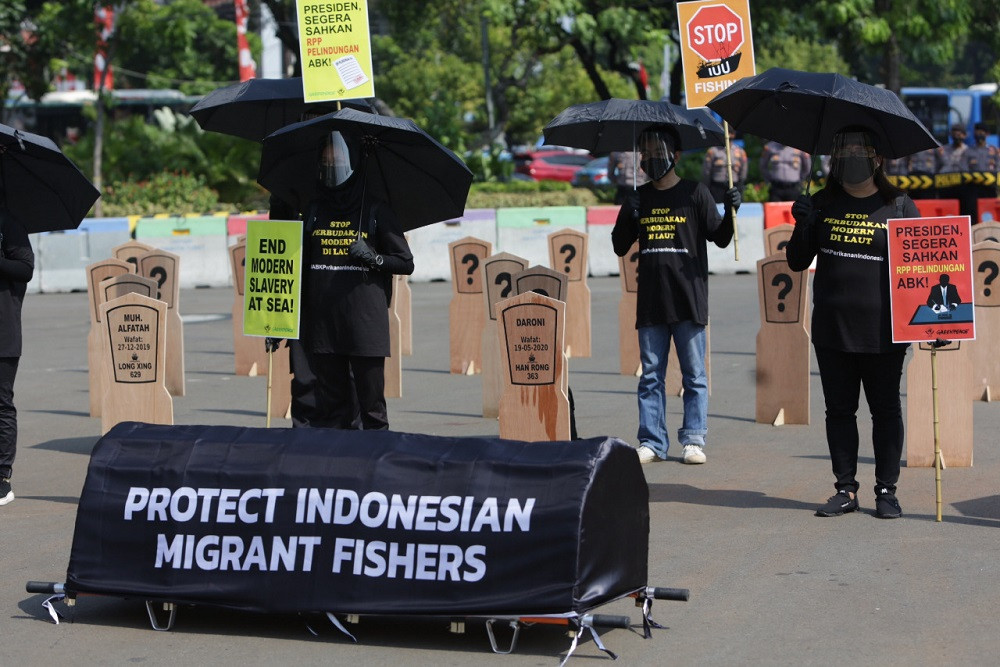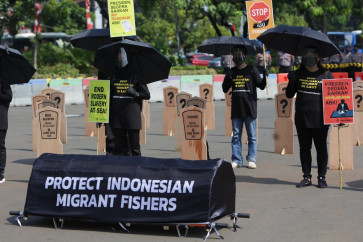Popular Reads
Top Results
Can't find what you're looking for?
View all search resultsPopular Reads
Top Results
Can't find what you're looking for?
View all search resultsIndonesian migrant fishers require decent working conditions
Government agencies have issued overlapping rules and regulations on the recruitment and placement of migrant fishers.
Change text size
Gift Premium Articles
to Anyone
T
he commemoration of International Migrants Day on Dec. 18, the theme of which this year was “Harnessing the potential of human mobility”, has highlighted the need for the government to pay closer attention to migrant fishers and their plight.
Migrant fishers engage in difficult, dirty and dangerous jobs in poor working conditions offshore and are vulnerable to exploitation. They contribute a lot to the seafood industry’s global supply chain. Sadly, their poor working conditions are the result of regulatory overlap, little access to skill development and a lack of inspection or intervention on their behalf.
Different government agencies have issued overlapping rules and regulations on the recruitment and placement of migrant fishers.
Most of the migrants are made to endure excessive working hours, poor accommodation and limited access to clean water and healthy food. They also risk injury and accidents due to a lack of safety equipment in workplaces that do not meet international labor standards.
In 2020 alone, the Foreign Ministry received 1,451 complaints from Indonesian migrant fishers working for foreign fishing fleets. In the same year, four Indonesian migrant fishers working on Chinese fishing vessels were found dead in South Korean territory.
To make matters worse, Human Rights Watch has reported that a number of migrant fishers of different Asian nationalities have fallen victim to modern slavery. Cases involving repatriation followed by unpaid salary, violence, death and trafficking have reportedly been rampant, numbering thousands a year.
Protecting migrant fishers is not an easy job, first and foremost because there is no clear or detailed information about their actual number. While the Indonesian Board for Migrant Worker Protection (BP2MI) estimates 9,000 Indonesian migrant fishers work offshore, the Indonesian Migrant Union (SBMI) estimates 22,000 are working on Taiwanese fishing vessels alone.



















